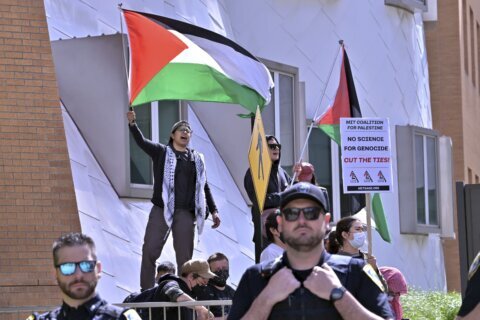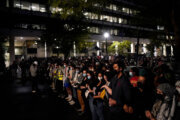BAMAKO, Mali (AP) — A U.N. investigation concluded Tuesday that a French airstrike in Mali had killed 19 civilians attending a wedding celebration back in January, prompting the French Defense Ministry to categorically reject the findings.
The report put together by the U.N. mission in Mali known as MINUSMA said that more than 100 people had been at the celebration on Jan. 3 in Bounti, including five suspected members of an al-Qaida-linked group. Three of those suspected militants were killed, the report stated, while the other two had left the event early.
The dead were all men between the ages of 23 and 71, the majority of whom lived in the village of Bounti, the report found.
“The group affected by the strike was overwhelmingly composed of civilians, who are people protected from attack under international humanitarian law,” the report stated. “This strike raises significant concerns about compliance with the principles of the conduct of hostilities, including the precautionary principle that requires that all feasible steps be taken to verify that targets are military objectives.”
French authorities have said that “several dozen” extremists were killed during the airstrike. On Tuesday, they said the U.N. report had relied on unidentified witnesses and failed to make clear under what conditions their testimony was taken.
“On the contrary, this strike followed a process of robust targeting,” the ministry said.
“The Defense Ministry cannot consider that this report brings any proof whatsoever contradicting the facts described by the French armed forces,” a statement said, insisting that international humanitarian law governing armed conflicts was strictly observed during the strike.
“We stand by the report and the work of our colleagues in Mali,” U.N. spokesman Stephane Dujarric told reporters in New York. “The best next steps would be for the Malian and the French authorities to conduct an independent, credible and thorough investigation into what happened in January.”
Corinne Dufka, Sahel director for Human Rights Watch, said the U.N. investigation suggests that the loss of civilian life exceeded the military gain.
“While the French have questioned the report’s methodology, it is more than enough to revisit their original conclusion and spur the opening of a proper investigation,” Dufka said. “Instead of digging in their heels, they should act with leadership and transparency and do just that.”
France’s Operation Barkhane, with some 5,000 troops, is fighting Islamic extremists in Africa’s Sahel region. France first intervened in Mali in 2013 to force the jihadists from power in towns across northern Mali, though militants have since regrouped and continue to stage attacks on Malian and international forces.
Shortly after the January strike in Bounti, some witnesses told The Associated Press that a helicopter had carried out strikes. France, though, denied a helicopter was engaged in the operation or that a wedding party was targeted.
“Some witnesses therefore affirmed they saw a helicopter when neither Malian forces nor (France’s) had engaged helicopters in this zone on that day,” the ministry statement said. “Others talked of an airplane flying at a low altitude when the aircraft that took part in the strike were at several kilometers of altitude.”
___
Ganley reported from Paris. Associated Press writers Krista Larson in Dakar, Senegal and Edith M. Lederer at the United Nations contributed.
Copyright © 2024 The Associated Press. All rights reserved. This material may not be published, broadcast, written or redistributed.






